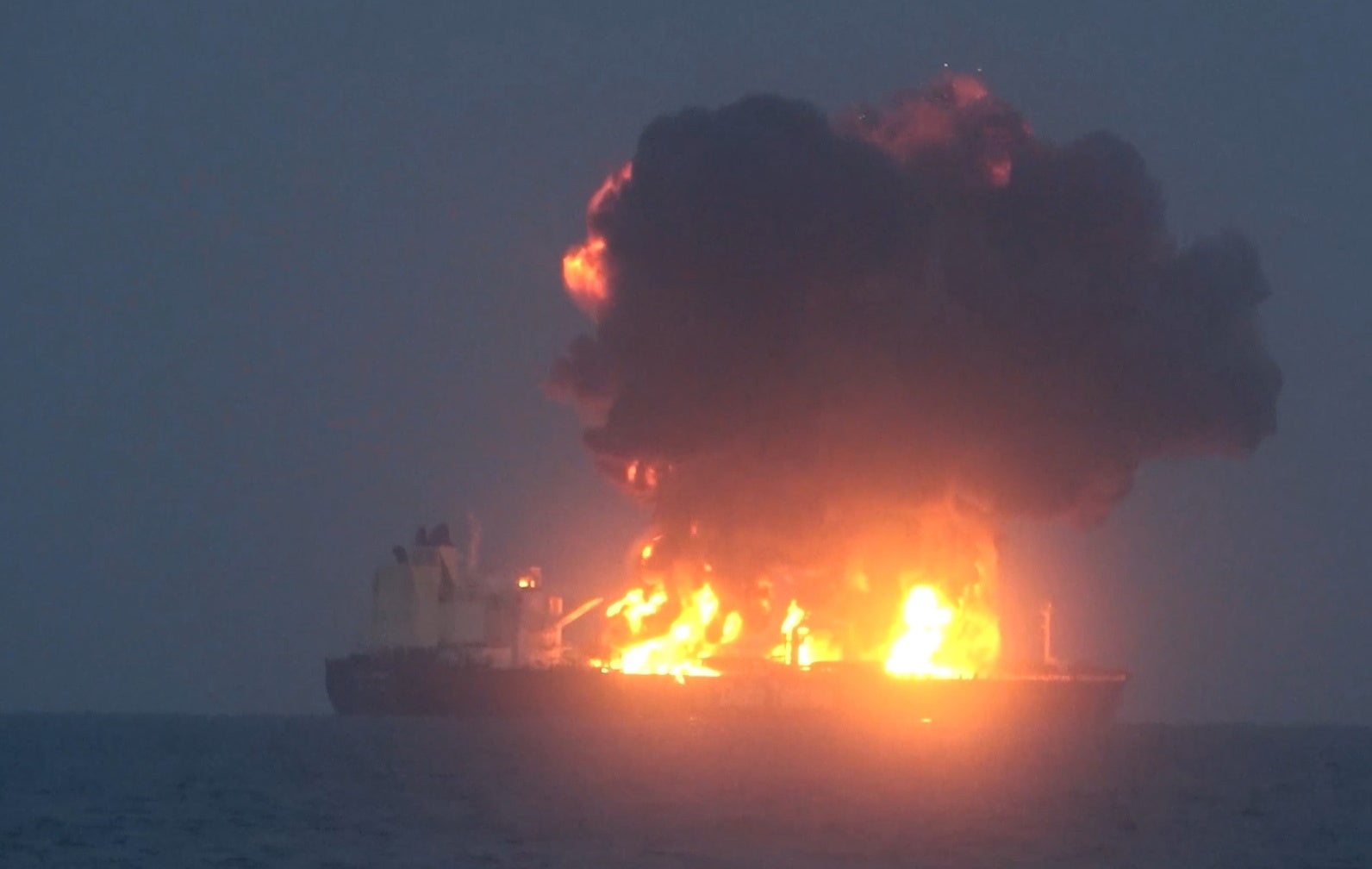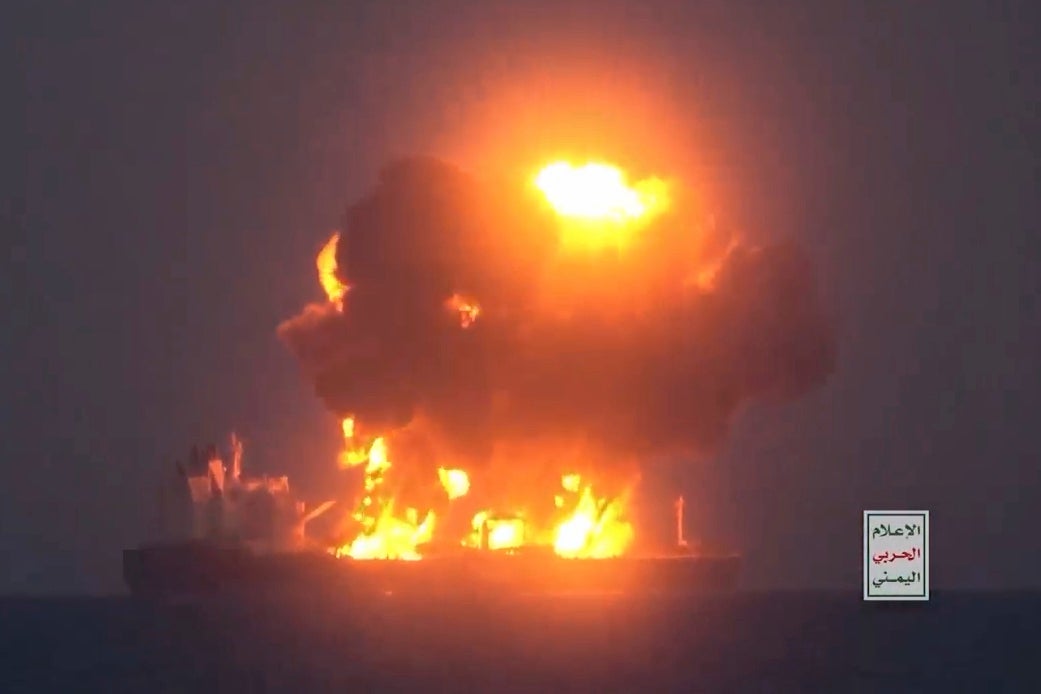Houthi rebels release footage of Red Sea oil tanker explosion amid fears of ‘disastrous’ impact on marine life
The Greek-flagged Sounion tanker, drifting in the Red Sea with 150,000 metric tons of crude oil, represents a significant environmental risk

Three fires broke out on a Greek-flagged oil tanker in the Red Sea, the United Kingdom Maritime Trade Operations (UKMTO) has reported, after Iran-backed Houthi militants attacked the vessel and its crew was evacuated.
The tanker first sustained damage on Wednesday when repeated strikes from the Houthis led to a fire and a loss of engine power. The vessel’s 25-member crew was later rescued by a European warship. Left unmanned, the tanker remained anchored in the waters between Yemen and Eritrea, according to a maritime security source who spoke to Reuters.
On Friday, UKMTO issued an advisory noting reports of three fires on the vessel, which added it now "appears to be drifting”. It’s not yet clear what happened on the tanker before the fires.
That same day, the Houthis released a video on social media allegedly showing their forces setting the tanker ablaze. The Independent has not independently verified the video.
The Sounion, which is carrying 150,000 metric tons of crude oil, now represents a significant environmental risk, according to the EU’s Red Sea naval mission, Aspides.
The group has warned of the potential for a catastrophic oil spill that could devastate the region’s marine ecosystem. The Djibouti Ports & Free Zones Authority echoed the concerns, stating on the platform X, formerly Twitter, that such a spill could have “disastrous consequences”.
The Sounion is the third tanker owned by Athens-based Delta Tankers to be targeted by the Houthis this month. The Houthis justified the attack by accusing Delta Tankers of violating its ban on entry to "the ports of occupied Palestine," as stated by their military spokesman Yahya Saree in a televised address.
In a brief statement on Friday, Delta Tankers said they were doing everything possible to secure the vessel and its cargo, but declined to provide further details for security reasons.
The recent attack on the Greek-flagged oil tanker Sounion is the latest in a series of increasingly bold operations by Yemen’s Houthi rebels, part of a broader campaign that has escalated tensions across the Red Sea.

Over the past 10 months, the Iran-backed Houthis have intensified their efforts to disrupt commercial shipping in the region, particularly targeting vessels associated with countries they view as adversaries.
This campaign, which the Houthis claim is in support of Palestinians in the conflict between Israel and Hamas, has seen the group launch a variety of maritime assaults, including missile strikes and the deployment of explosive-laden drones. Its operations have focused on areas around the Bab al-Mandab strait, a critical maritime chokepoint through which a significant portion of the world’s oil passes.
Join our commenting forum
Join thought-provoking conversations, follow other Independent readers and see their replies
Comments
Bookmark popover
Removed from bookmarks